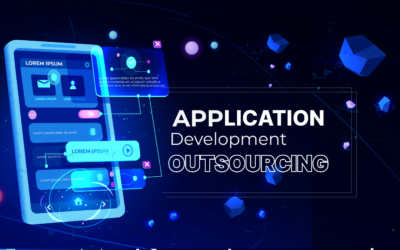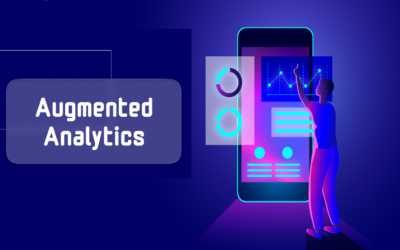A Guide to Business Process Automation

Introduction
In today’s fast-paced business world, companies always look for ways to improve efficiency and reduce costs. One of the most effective strategies is Business Process Automation (BPA). This guide will help you understand what BPA is, how it works, its benefits, and how you can implement it in your organization.
Business Process Automation (BPA) is essential for boosting efficiency and optimizing operations. So, what is BPA? Business Process Automation refers to using technology to automate tasks or services that achieve specific business functions or workflows. It simplifies processes, cuts costs, and boosts efficiency by reducing manual work. Automation tools and BPA software let employees concentrate on more strategic tasks that need human involvement.
Integrating these technologies effectively can greatly enhance operational efficiency, but it requires careful planning and execution. As businesses seek to utilize these automation tools, from simple workflows to advanced BPA solutions, the key is to adapt these technologies to their specific needs and goals. This way, they can maximize the positive impact of automation on their performance.
What is Business Process Automation?
The main goal of Business Process Automation (BPA) is to automate complex business processes involving multiple steps and system integrations. It handles repetitive tasks to reduce or eliminate manual effort. BPA is not just about adopting new technology but transforming essential business processes to be more efficient and productive.
BPA tools provide the necessary software solutions to facilitate smooth interactions between different departments and systems. These tools automate tasks ranging from data entry and analysis to complex decision-making processes. This allows employees to focus on strategic tasks that require critical thinking and a human touch.
Process automation can be applied to various operational aspects of a company.
When automating business processes, it’s essential to view BPA as a strategic initiative that leverages digital technology to transform key business functions. This approach aims to streamline workflows, reduce operational costs, and enhance overall business performance.
Examples of Business Process Automation
Business Process Automation (BPA) is incredibly useful for tasks such as automating employee onboarding, managing customer service inquiries, and handling order processing. But what are some specific examples of process automation?
One example is an automated invoicing system that speeds up billing and reduces errors common with manual entries.
BPA is also ideal for employee onboarding. This process usually involves several administrative tasks, like collecting personal data, signing legal documents, and integrating the new employee into the company’s systems. Automating these steps ensures a swift and consistent process, reduces administrative workload, and minimizes human error, ensuring all necessary steps are meticulously followed.
Another practical application of BPA is automating credit applications. BPA can run credit checks and make preliminary decisions based on predefined criteria. This not only speeds up the process but also reduces workloads and improves customer service.
BPA optimizes repetitive and time-consuming business processes, enhancing productivity and accuracy. Automated email responses, customer service management, and supply chain operations are also areas where BPA can significantly impact efficiency and effectiveness. More sophisticated applications include AI-driven BPA, which uses artificial intelligence to handle more complex decision-making processes.
These examples highlight the transformative potential of BPA to enhance business workflow automation and streamline processes across various industries.
Benefits and Challenges of Business Process Automation
Automation reduces the time spent on repetitive tasks, enabling employees to focus on more strategic activities that require human insight. For example, in the insurance industry, automation streamlines claims processing and underwriting, leading to faster service delivery and higher customer satisfaction. Moreover, integrating custom software development services into BPA allows organizations to tailor solutions to their specific processes and needs, enhancing functionality and user experience.
However, managing organizational change and adopting BPA presents challenges. Employees must adapt to new workflows and technologies, and the initial setup and implementation costs can be high, especially when integrating complex systems that require custom software solutions and dedicated software development teams. Additionally, maintaining the security and privacy of automated processes is crucial, particularly when handling sensitive customer data. Ensuring these systems are resilient against cyber threats necessitates regular updates and continuous monitoring.
How is BPA related to RPA and BPM?
Navigating the world of Business Process Automation (BPA) requires understanding its place within the broader context of business automation services and technologies like Robotic Process Automation (RPA) and Business Process Management (BPM). While BPA focuses on the complete automation of business processes to drive significant improvements and enhance the bottom line, RPA is more about automating specific tasks within these processes.
BPA, RPA, and BPM each serve unique functions within the automation spectrum. BPA has a broader scope, aiming for end-to-end automation and optimization of business processes to boost efficiency and productivity. It often involves integrating multiple systems and workflows to automate complex business operations.
So, what is the difference between RPA and BPA? RPA focuses on automating specific tasks within processes. It uses software bots to perform repetitive tasks previously done by humans, such as data entry and standard transaction processing.
BPM, on the other hand, is a discipline that involves the comprehensive management of a company’s business processes. It aims to improve the efficiency and effectiveness of these processes through various methods, including automation. BPM focuses on creating flexible, optimized processes that can adapt to changing business environments. BPA specifically targets the automation of these processes for more streamlined operations.
Integrating BPM and BPA with the tactical use of RPA can significantly improve operational efficiency and strategic business performance.
How to automate business processes
To effectively automate business processes, organizations should start by identifying the processes most suitable for automation—those that are repetitive, time-consuming, and prone to human error. Custom software development services can provide tailored solutions that meet specific business needs and integrate seamlessly with existing systems. Establishing a dedicated software development team can further facilitate this integration, ensuring that the automation aligns with business goals and enhances operational efficiency without disrupting existing workflows.
Once the appropriate processes have been identified, it’s crucial to develop a clear strategy outlining the desired outcomes, the technology to be used, and the success measures. This strategy should include a detailed implementation plan, a timeline, and a budget. Providing training and support for staff, along with a robust change management plan, is essential to ensure a smooth transition and optimal adoption of the new automated processes.
Finally, continuous monitoring and optimization of automated processes are vital to promptly address issues and refine the automation for better results. This holistic approach enhances operational efficiencies and drives sustained business growth and innovation.
What Technologies are Typically Used in Business Process Automation?
- Workflow Automation Software: Tools like Zapier and Microsoft Power Automate that help automate tasks between different applications.
- Robotic Process Automation (RPA) Tools: Software like UiPath, Blue Prism, and Automation Anywhere for automating repetitive tasks.
- Artificial Intelligence (AI) and Machine Learning: Technologies that can analyze data, make decisions, and improve processes over time.
- Business Intelligence (BI) Tools: Software that helps analyze data and generate insights to improve business processes.
- Customer Relationship Management (CRM) Systems: Tools like Salesforce that automate sales, marketing, and customer service processes.
Conclusion
Business Process Automation is a powerful tool that can help businesses improve efficiency, reduce costs, and increase productivity. By understanding the basics of BPA, its benefits and challenges, and how to implement it, you can leverage automation to streamline your business operations. Whether you’re looking to automate customer service, HR, finance, or any other area, BPA offers a range of solutions to help your business succeed in the modern world.
Implementing BPA can seem daunting at first, but with careful planning and the right tools, it can transform your business. Start by identifying processes that can be automated, analyze and map these processes, and choose the right technologies to implement. Keep in mind the potential challenges and prepare to address them through proper change management and ongoing maintenance.
By embracing Business Process Automation, you’re not just adopting a new technology; you’re taking a significant step towards future-proofing your business and staying competitive in an ever-evolving marketplace.
Are you looking for any IT Services such as Software Testing, Web design and Development, Professional/Staff Augmentation Services, Cloud Computing, Mobile App Development, Digital Marketing Services and more? Connect Stridefuture Technology, which helps to meet your requirements.
{Stridefuture Technology, a full-service company specializing in Software Solutions and Consultancy services. We specialize in Personal, Business, IT Services, Software Testing, Web design and Development, Mobile App Development, Digital Marketing Services, and much more you can dream Virtually with us! Reach out for more service at Stridefuture Technology.}









